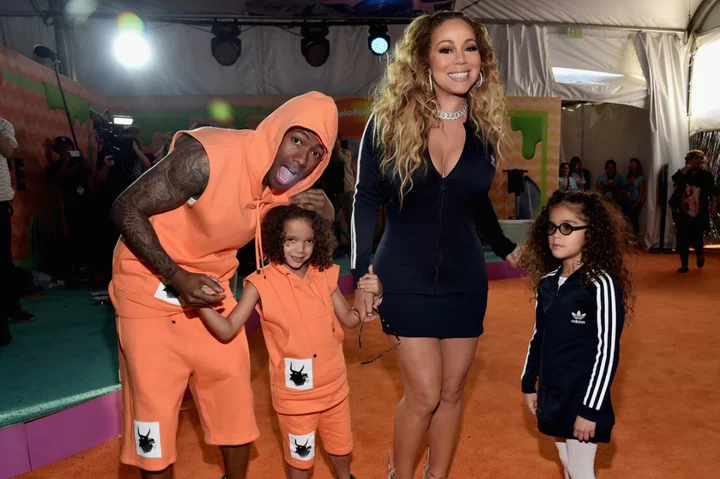
Nick Cannon candidly admits Mariah Carey saved his life amid lupus diagnosis
Nick Cannon has revealed the appreciation he has for ex-wife Mariah Carey during a difficult time. In a recent interview on the Diary Of A CEO podcast, the father of 12 wasn’t afraid to confess that he wouldn’t have survived his 2012 lupus diagnosis if it wasn’t for the “Without You” singer by his side. “She was my rock,” he admitted. “She went hard. To be honest, I probably wouldn’t be alive if it wasn’t for how hard she went with the doctors, with me, my stubbornness.” The Grammy winner, 54 and the former America’s Got Talent host, 42, saw sparks flying almost immediately when Carey cast Cannon as her love interest in the 2008 “Bye Bye” music video. It only took six weeks from the time they got engaged for Carey and Cannon to tie the knot. In 2011, they welcomed fraternal twins Moroccan and Monroe. Unfortunately, Cannon was diagnosed with lupus one year later - an inflammatory disease which occurs when the immune system attacks its own tissues. The Masked Singer host described Carey as “the perfect helpmate, the perfect matriarch, the perfect mom, the perfect wife” during this time. “It probably took a toll on us just because of the person I was in my head and the struggles that I was dealing with,” he continued. “But it definitely brought us closer together.” When podcast host Steven Bartlett asked whether Cannon believed Carey “saved his life”, he simply responded: “I absolutely do.” “But that’s what you do when you find a helpmate. When you find someone that you’re in matrimony with, you go hard for [them],” Cannon pointed out. “I feel like I went hard for her and we’ll still go hard - I lay down my life for her today. That’s what you do, it’s just family.” Cannon went on to explain how his experience with the disease put many things into perspective for him. However, it wasn’t easy for him to see things clearly while he was struggling. In fact, he told Bartlett that he was also dealing with mental health issues at the time, such as questioning his purpose and effect on the world. “Staring up from the hospital bed, staring at the ceiling all alone when everybody else is kicked out, and you gotta be face to face with your higher power, asking all those tough questions. Am I done?” he explained. “A lot of people don’t do that because we get caught up in the constant race of just living day to day, but it slowed down for me on many occasions.” While it may have been difficult for him to comprehend at the time, Cannon said he now lives his days with direction and without fear. “I’m probably reminded of my physical mortality all the time,” he noted. “And when you’re not afraid of dying, you focus on living, you know?” This isn’t the first time the TV personality has praised the “All I Want for Christmas Is You” singer. In 2022, Cannon opened up to Entertainment Tonight about the gratitude he has for his time spent with Carey. “I was talking about the fantasy of it all. I was like: ‘Yo, if I could have that same vibe of where I was at that state in my life and that age, of course I would do that all over again,’” he said. “But I’m not.” In addition to his two children with Carey, Cannon has welcomed Rise, Powerful, and Golden, with Brittany Bell; Zion, Zillion, and Beautiful with Abby De La Rosa; Halo with Alyssa Scott; Legendary with Bre Tiesi; and Onyx with LaNisha Cole. Cannon and Scott lost their baby boy, Zen, to cancer in 2021 when he was only five months old. Read More Nick Cannon’s brother says he can’t remember the 12 names of his nieces and nephews Nick Cannon shares Mariah Carey’s ‘high frequency’ reaction to actor having 12 children Mariah Carey: 'Music was my escape' The best napping method to help with pulling an all-nighter Toys children play with can have an effect on their success in adulthood Summer of female sporting events inspires millions of women to get back into the game
2023-09-28 03:15

I get talk show hives! Anne Hathaway's body reacts to interview stress
Oscar-winning actress Anne Hathaway gets hives and her skin goes blotchy from the stress of having to appear on TV and give interviews.
2023-09-28 00:24
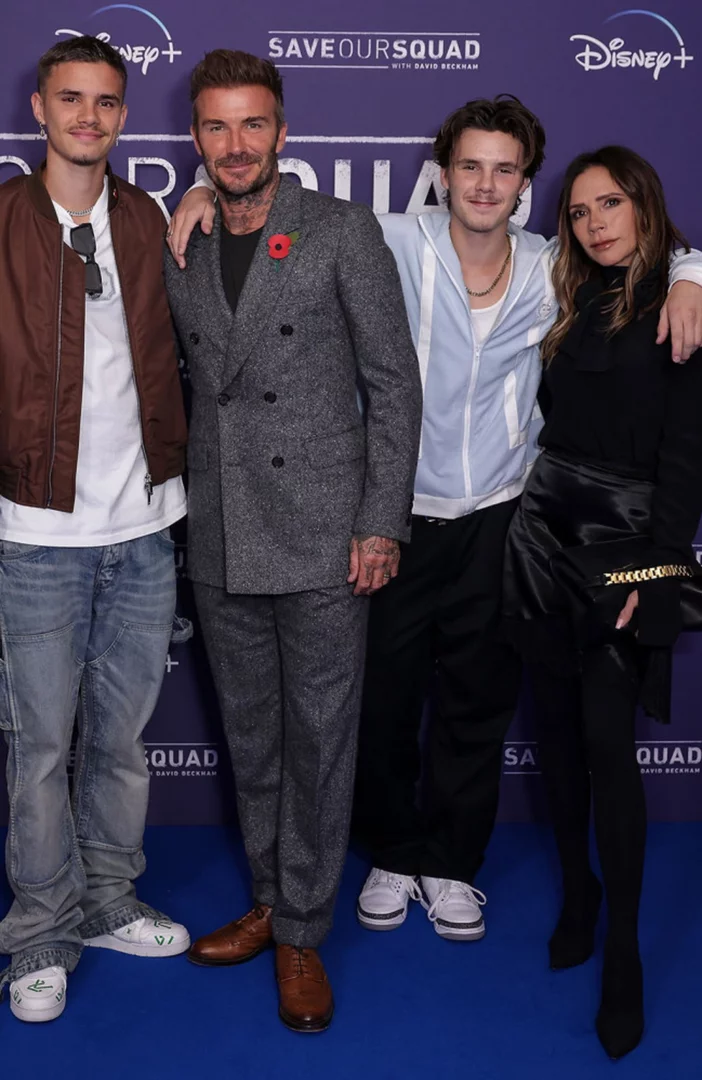
'She’s like a pro when it comes to putting on make-up...' Victoria Beckham praises daughter Harper's beauty skills
Fashion designer Victoria Beckham has revealed that her 12-year-old daughter Harper is becoming quite the young beauty expert and is already "like a pro" when it comes to applying her own make-up.
2023-09-27 23:20

The best napping method to help with pulling an all-nighter
Pulling an all-nighter for an exam? Or do you work night shifts that you just can’t avoid? Well, researchers have revealed the optimal napping method to help combat fatigue during a 16-hour overnight duty. The research looked at data from pilot studies on night shifts conducted from 2012 to 2018 and found that the analysis could also be the key to providing relief for sleep-deprived mothers and fathers. The team found that scheduling two nap sessions – a 90-minute nap followed by a quick 30-minute nap later – is the optimal choice over a single 120-minute rest for delaying fatigue and sleepiness. “A 90-minute nap to maintain long-term performance and a 30-minute nap to maintain lower fatigue levels and fast reactions, as a strategic combination of naps, can be valuable for early morning work efficiency and safety,” said study author Sanae Oriyama, a nursing science professor at Hiroshima University’s Graduate School of Biomedical and Health Sciences. The study, published in the journal Scientific Reports, found that many professions, including those in emergency sectors, have a lot of night shift work which can in turn increase the risk for sleep-related physical and mental health disorders and impair job performance. When daytime comes, the human body has a light-sensitive internal clock that activates wakefulness, and at night, this pushes the human body towards sleep. Study authors say because of this, the likelihood of errors and accidents during a night shift is elevated. In the medical field, this may inadvertently lead to serious harm to patients or to oneself, and naps are usually taken by shift workers to offset disruptions to the body clock. For the study, researchers looked at 41 women in their 20s who underwent a simulated 16-hour shift in a controlled environment, where factors, such as light and temperature, were standardised. Participants underwent hourly tests, including the Uchida-Kraepelin test (UKT) for assessing task speed and accuracy, and measurements of drowsiness, fatigue, heart rate and blood pressure. Professor Oriyama found that women who took a single 120-minute nap suffered increased drowsiness from 4am onward. Those who had two naps, a 90-minute nap followed by a 30-minute nap, postponed their drowsiness until 6am. Researchers suggest adding an extra 30 minutes of shut-eye between 5am and 6am, given that drowsiness might shoot up from 7am to 8am. All nap participants reported fatigue between 4am and 9am, whereas the dual-nap group reported less intense fatigue. “During a night shift that, for example, lasts from 4pm to 9am the next morning, a split nap of 90 minutes and 30 minutes, ending at 12am and 3am, respectively, is thought to be more effective than a 120-minute monophasic nap ending at 12am when tasks requiring quick responses to maintain a high level of safety are scheduled between 2am and 9am.,” Professor Oriyama said. The study also revealed that the duration of the nap plays a crucial role. The later you take it, it will become more difficult to fend off sleepiness and exhaustion. However, delaying it too much could interfere with your focus as your sleep drive builds up. “Hence, the ideal time for taking a nap and the ideal nap schedule during long night shifts need further elucidation,” Professor Oriyama added. Read More Why is my teenager sleeping so much? Sounds that can help you fall asleep better How to sleep during hot weather, according to experts Sounds that can help you fall asleep better How to spend the perfect healthy Super Saturday – according to science Summer of female sporting events inspires millions of women to get back into the game
2023-09-27 21:49
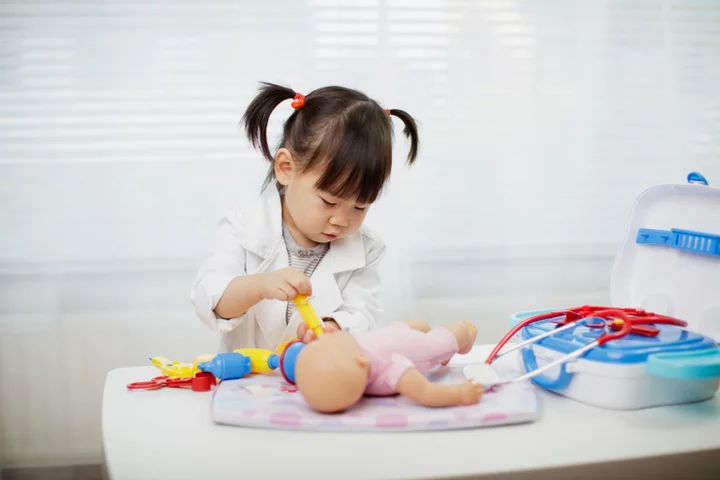
Toys children play with can have an effect on their success in adulthood
The type of toys children play with can have a profound effect on their success in adult life, according to an academic report. Dr Jacqueline Harding, a child behavioural expert, said repetitive childhood play can provide a long-lasting memory imprint and have the potential to subconsciously steer their career path. And they can help develop and deepen problem-solving abilities and improve imagination and creativity. Dr Harding explained how joy in early life from playing with toys can become a strong driver in later life decisions. It follows research of 1,000 parents of 0-7 year olds, which found 75 per cent buy toys they hope will contribute towards their child’s future success. More than half (51 per cent) deem their child’s playthings very important to develop their critical skills, crucial for everyday life. The study was commissioned by Mattel, creators of Thomas & Friends, which has released a white paper from King’s College London revealing the social and cognitive benefits of train play for children. Dr Jacqueline Harding said: “Favourite toys tend to be played with almost every day and it is this repetitive act that can leave an imprint on the young developing brain. “So, it almost goes without saying that the playthings young children engage with on a regular basis can have a long-term effect and may even subconsciously steer them in a particular career direction. “Of course, this is hard to prove beyond doubt as there are so many other factors involved - but taking toys seriously is a good idea as children spend so much time engaging with them, and choosing wisely according to their individual interests can pay real dividends.” The biggest benefit parents believe children get from toys when it comes to improving critical skills is the improvement in their fine motor skills (68 per cent). Almost as many (67 per cent) said it was how toys drive imagination and creativity, while 63 per cent think toys can help with problem-solving skills. While 86 per cent went as far as saying they think toys can have a large or moderate impact on improving a child’s chances of a successful career, in the future. But when it comes to actually choosing toys for their children, the top priority is that it they are age-appropriate (59 per cent). Others want to ensure the toy is safe (55 per cent) or more than its perceived educational value (47 per cent). It also emerged 58 per cent have particular brands or toy lines they turn specifically for their developmental value. But 21 per cent fear their little ones don’t play with educational toys as much as they’d like, according to the OnePoll.com data. Dr Harding added: “One astounding insight is that at two years of age children engage in the same level of mental work as adults whilst engaged in imaginative play. “It is well established that imaginary play and creative pursuits offer up a wealth of surprising benefits that have exciting biological and neurological benefits for children and adults. “During childhood, the brain is known to be particularly absorbent – this is known as ‘neuroplasticity’. “In other words, it is easier to learn aspects of life – so not only does play yield a significant benefit during childhood itself but also in later adult life.” It comes after a separate white paper by Dr Salim Hashmi, a researcher from King’s College, reviewed more than 1,600 scientific research papers to explore the advantages of playing with toy trains. One of the primary benefits Dr Hashmi identified was children who play with toy trains can develop better thinking and social skills, allowing them to learn and practice collaboration, cooperation, and social understanding while interacting with others. His study also highlighted how playing with toy trains allows children to develop and refine essential thinking skills, contributing to their problem-solving abilities. Talking about his research for Thomas & Friends, Dr Hashmi said: “Constructing tracks, arranging train cars, envisioning scenarios, and enacting them during train play can stimulate cognitive development and enhance critical thinking, spatial analysis, and decision-making skills. “Collaborative play with toy trains could help encourage teamwork, negotiation, and collaboration, as children share resources, ideas, and play together. “Additionally, playing with toy trains provides children with opportunities to develop and practice problem-solving abilities. “Overall, train play, is an excellent way for children to develop key skills.” Top tips on choosing a toy for your child: 1. Take time to watch your child playing and try to get ‘into their thinking’ – what appears to light up their brain? 2. Guide children towards toys and play experiences that meet the need for them at their stage of development. 3. Be aware of the types of play that can aid them in their future – toys that help them begin to connect with others (when they are developmentally ready and able to do so). 4. Play with your child in a way that does not take over but allows them agency - a little control. 5. At other times, sit back and allow your child space to think while they play - being mindful that in their brain so much is taking place. 6. Talk to your child in ways that they can understand about what they are doing while they play – just gentle questions not an inquisition. Children often wish to share with adults what they have achieved or what matters to them while they play. 7. Allow your child time to explain what they are doing. Younger children will perhaps just show you rather than talk about it while older children might wish to discuss how they solved a problem or found a solution while they played. 8. Help children begin to collaborate with others while they play. Sometimes this may just involve keeping a watchful eye and ensuring a fair distribution of resources, so conflicts are avoided. 9. Relish play and be respectful of the power it yields in terms of a child’s mental health and general wellbeing. 10. Guide children towards toys and play experiences that are inclusive and not gender specific. Read More Study finds free childcare reform has ‘little benefit’ to poorer families Couples delay getting married in order to buy new home Most children in kinship care living with at least one grandparent, figures show Sophie Turner and Joe Jonas reach agreement after child custody row Comedian Ashley Blaker on why he wants to ‘change the conversation’ around children with special needs Brian Austin Green gets candid about co-parenting with Megan Fox
2023-09-27 20:48
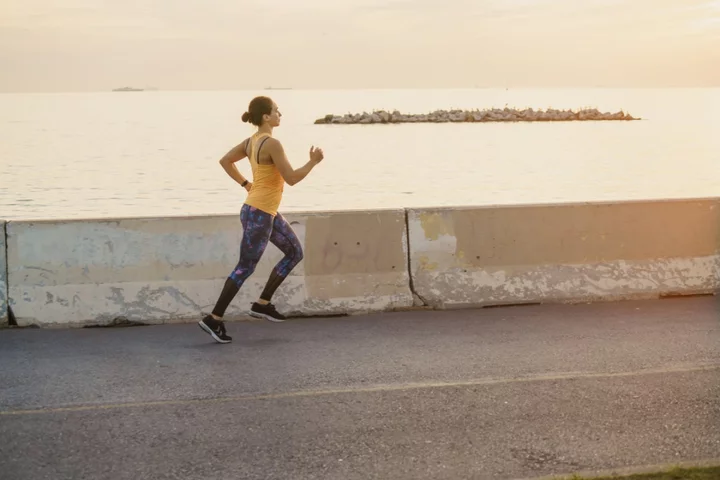
Summer of female sporting events inspires millions of women to get back into the game
A bumper summer of female sporting events has inspired millions of women to get back into sports after years of fear and judgement. Encouraged by competitions such as the FIFA Women’s World Cup, the Women’s Ashes and Wimbledon, 59 per cent of women have started training with an old sports team again. A poll of 2,000 females aged 18-65 found 46 per cent feel motivated to try sport after seeing the empowerment and determination showed by these professional female sporting stars. It also emerged 31 per cent of women over 45 played sports when they were younger but dropped out as a teenager, with being ‘too sweaty’ and not feeling ‘good enough’ to take part among the top reasons. But now, many are dusting off their boots, digging out their racquets and getting back to action. Sure UK, a supporter of women’s sports, commissioned the research after launching the Breaking Limits: Girls Can Football Series, which aims to provide funding and training to give young people access to sport coaches, communities and safe spaces. Former Lionesses goalkeeper Carly Telford, who is partnering on the campaign, said: “Too many women have missed out on years of enjoyment, fitness and socialising due to feeling unable to continue with team sports and it’s about time they feel inspired to get back into the sports they enjoy without fear. “There’s still a long way to go and so much more that we need to do to promote women’s sport in all corners of the world. “To normalise women succeeding on pitches, courts and fields should be everyone’s goal, and both consumers and organisations have roles to play to make this a reality.” The study found there is more to do though, with 77 per cent of women believing that society needs to promote female sporting role models. While 36 per cent worried about being treated differently to men if they were to participate in sports, leaving 64 per cent put off trying sports altogether as a result. But putting worries aside, the future of women in sport looks bright, with the most popular sports they’d like to be involved in named as football (37 per cent), netball (21 per cent) and athletics (15 per cent). A quarter voted netball as the most inclusive sport for women, followed by athletics (15 per cent), and football (15 per cent). And half believe women’s football will eventually be as popular as men’s football – if not more. For 74 per cent, playing as part of a team has worked wonders for their mental health, while 51 per cent said sports has had a positive influence on their life overall. As 46 per cent of those polled, via OnePoll, feel motivated to try a sport after seeing the empowerment and determination showed by the sporting stars. ‘Movement has the power to transform lives’ Alice Duffill, from Sure UK&I, said: “Movement has the power to transform lives. “Everyone should be able to experience all the incredible physical, mental and social benefits movement bring - whoever you are, however you move. “But in our increasingly unequal societies, social, economic, and physical barriers stand in the way. “Inspiring women and girls to play sport through promoting and raising awareness professional athletes who look like them is key in breaking down some of those barriers. “That’s why we’re committed to growing women’s sports as we know the importance of shining a light on professional women athletes to help inspire today’s and tomorrow’s girls”. Read More Study links ultra-processed food and drink to risk of depression in women Study finds women only give themselves 30 minutes of self-care a week Women respond to viral TikTok prompt asking about ‘female version’ of male Roman Empire obsession The cure for smelly garlic breath? Turns out, it’s simpler than you think Teenager’s death after drinking too much water was ‘preventable’ Could bats hold the secret to beating Covid and cancer?
2023-09-27 20:25

Gaby Roslin says she’ll ‘never apologise’ for saying she’s happy post-divorce
TV presenter Gaby Roslin has said she will “never apologise” for telling people she’s happy, after she experienced moments of grief following her divorce. The former The Big Breakfast presenter and author, 59, was married to musician Colin Peel for almost a decade. They share a daughter together. “Not all my life has been joyful. My mum died young. I’ve been through divorce and lost some of my dearest friends,” she told Prima magazine. “You go through those things and you realise that life is precious and, without sounding trite, I will never apologise for saying I’m happy.” Roslin’s mother died just over 20 years ago, around the time she was beginning a new job. The TV star said that it feels like she and her husband of 18 years, David Osman, “fit together”. She shares another daughter with Osman. “We still really appreciate what we have,” Roslin, who presents a show on BBC Radio London along with sints on BBC Radio 2’s The Zoe Ball Breakfast Show and BBC One’s Morning Live, said. “The things that makes it work is that we’re not in competition with each other: We’re very, very different.” Speaking about how “life is crappy for a lot of people”, she added: “I’m someone who has always been very positive and full of laughter, but I’m aware that it’s not something everyone can hold on to. “There are coping mechanisms that have helped me, and I know they can help others, too.” Roslin revealed that some of her personal coping mechanisms have included giving up alcohol five years ago, and going for walks. “There’s a lot of ageism out there,” she said. “It’s no secret in my industry, but it’s everywhere. You can’t do this or that if you’re a certain age. No! I’m lucky that I’ve carried on working, but I have friends who have experienced it. “I know an actor who, at 55, was going for the part of someone older than her and was told that she was too old. They cast a 40-year-old. That’s so wrong.” Roslin is preparing to release her new guided journal, Spread The Joy: Simple Practical Ways To Make Your Everyday Life Brighter, which focuses on stories, illustrations, anecdotes and tips and tricks. The full interview is available now in Prima’s November issue in supermarkets and online at Mags Direct. Additional reporting by Press Association. Read More Sophie Turner and Joe Jonas reach agreement after child custody row Who is Laura Gallacher, Russell Brand’s wife of six years? Everything we know about Katy Perry and Russell Brand’s short-lived marriage Why is my teenager sleeping so much? Sounds that can help you fall asleep better Holidays to the homeland could help children hold onto family’s original language
2023-09-27 18:25
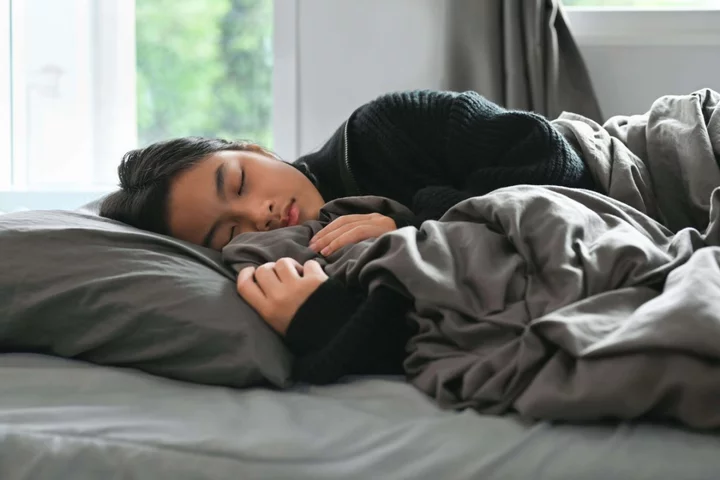
Why is my teenager sleeping so much?
When you think about it, teenagers are a lot like pandas. Like the black and white bears, teens often have a tendency to lounge around for hours, munch their way through massive amounts of grub, and snooze for extremely long stretches. It’s not unusual for youngsters to emerge zombie-like from their bedrooms hours after parents and little ones have arisen on weekend mornings, or have a ‘disco nap’ in the afternoon. But how can you tell if your child’s sleeping habits or typical for a teen – or a cause for concern? How much do teens need? “Sleep research suggests that a teenager needs between eight and 10 hours of sleep every night, so slightly more than an adult or younger child requires,” says Dr Hana Patel, sleep expert at Time4Sleep. “This is because teenagers need additional sleep to support their rapid physical, intellectual, and emotional development.” Chris Tattersall, sleep expert and MD of Woolroom explains: “They are going through a second developmental stage of cognitive maturation. Additional sleep supports their developing brain, as well as physical growth spurts.” However, it’s estimated that most adolescents in the digital age only get about 6.5 to 7.5 hours sleep. Tattersall says: “With the increased use of social media scrolling before bedtime, this is affecting thousands of teenagers’ sleep because the blue light from screens suppresses melatonin levels and delays sleepiness.” What happens if they don’t get enough sleep? “Teenagers not getting enough sleep can lead to all sorts of potential issues,” says Tattersall. Psychological symptoms may include, he warns: “Depression, difficulty concentrating, memory loss, anxiety and low self-esteem.” Plus, there’s the risk of weight gain due to eating more sugary foods to combat tiredness. “Not only does it have negative effects on their general wellbeing but it can also affect their academic performance,” Patel adds. Is it possible to sleep too much? It may seem counterintuitive, but sleeping too much can actually make young people more tired. “Anything over eight to 10 hours of sleep for teens could be considered excessive and may cause daytime sleepiness,” says Patel. “This can negatively affect interpersonal relationships, extracurricular activities, general health and, for older teens, driving too.” It’s important for parents to watch for signs that teens are struggling with sleep. “Look out for concentration difficulties, shortened attention span, memory impairment and lack of enthusiasm or energy,” Tattersall says. “You also might notice moodiness and aggression, poor decision-making, and signs of depression.” Patel says: “Sometimes teens may also complain of symptoms like headaches and migraines.” Try to encourage good ‘sleep hygiene’ in terms of a youngster’s evening routine, meaning avoiding large meals and caffeine before bed and creating a relaxing bedroom environment. “If possible, reduce the use of devices like smartphones and tablets, TVs or computers in the bedroom at night, as the light from the screens interfere with sleep,” Patel says. “If you are concerned about your teenager’s sleeping habits and the effects of this on their health, consult with your GP.” Read More Charity boss speaks out over ‘traumatic’ encounter with royal aide Ukraine war’s heaviest fight rages in east - follow live Kate gives a lesson in autumnal power dressing in a green trouser suit How can I boost my soil when I go peat-free? See Cate Blanchett champion sustainable fashion at glamorous Giorgio Armani show
2023-09-27 16:20
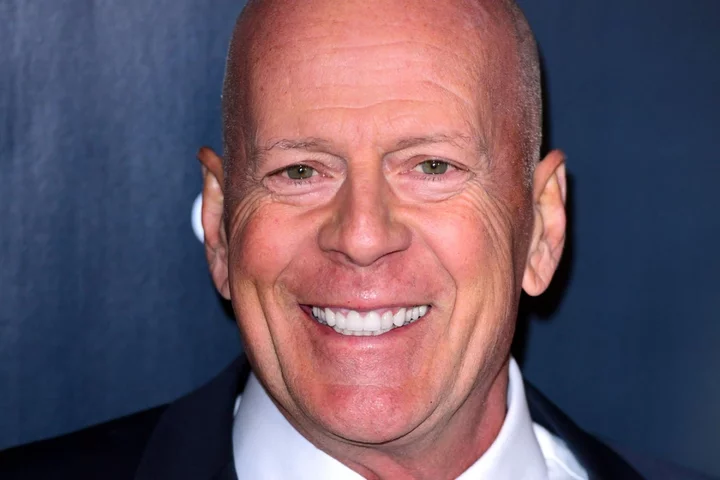
5 signs of frontotemporal dementia: Bruce Willis’s condition explained
Emma Heming Willis, actor Bruce Willis’ wife, provided an update on her husband’s health in a new interview with the Today show. She said being a celebrity does not change the reality of living with a disease like frontotemporal dementia. “You know what I’m learning is that dementia is hard. It’s hard on the person diagnosed, it’s also hard on the family,” she explained. “And that is no different for Bruce or myself or our girls. When they say this is a family disease, it really is.” Willis’ family first announced his diagnosis of frontotemporal dementia in March. At the time, they wrote they had the “deepest gratitude for the incredible outpouring of love” following the initial news. Here we take a closer look at the condition, known as FTD. – What is FTD? FTD refers to a group of illnesses that primarily affect the frontal and temporal lobes of the brain, which are associated with behaviour, personality, and language, per the Mayo Clinic. It’s often misdiagnosed as Alzheimer’s disease or a psychiatric problem, and it often begins between age 40 and 65. FTD accounts for between 10 and 20 per cent of all dementia cases. – What causes FTD? It’s not clear what causes FTD. Certain genetic mutations have been linked to the condition, but many people who develop FTD do not have a family history of the illness. The NHS says that, like other forms of dementia, FTD tends to develop slowly and get gradually worse over the years. – What are the symptoms of FTD? There are two types of FTD – behavioural variant FTD (bvFTD) and primary progressive aphasia (PPA). BvFTD, which results from damage to the frontal lobes of the brain, mainly causes problems with behaviour and personality. PPA, when damage occurs to the temporal lobes on either side of the head nearest the ears, causes language problems. Alzheimer’s UK says that FTD symptoms are “very different” to other more common types of dementia, such as day-to-day memory loss – adding that in the early stages of the disease, many people can still remember recent events. The symptoms can be distressing to family members, as they include lack of judgment, inappropriate social behaviour, decline in personal hygiene, compulsively putting things in one’s mouth, and eating inedible objects. People may also show a lack of interest in their activities, which is sometimes mistaken for depression, and they may exhibit a lack of empathy. – How is FTD treated? According to Dementia UK, there is no prevention or cure for FTD and it is often best to “focus on practical strategies to help the person live as well as possible with the diagnosis”. Willis’ family said that the lack of treatment for the disease was “a reality that we hope can change in the years ahead” with further research. They added that they hope media attention will be used to raise more awareness of FTD. “Bruce always believed in using his voice in the world to help others, and to raise awareness about important issues both publicly and privately,” they said. “We know in our hearts that – if he could today – he would want to respond by bringing global attention and a connectedness with those who are also dealing with this debilitating disease and how it impacts so many individuals and their families. “Bruce has always found joy in life – and has helped everyone he knows to do the same.” Read More Charity boss speaks out over ‘traumatic’ encounter with royal aide Ukraine war’s heaviest fight rages in east - follow live Kate gives a lesson in autumnal power dressing in a green trouser suit How can I boost my soil when I go peat-free? See Cate Blanchett champion sustainable fashion at glamorous Giorgio Armani show
2023-09-27 02:16

Kourtney Kardashian announces imminent arrival of her new collection with Boohoo
Kourtney Kardashian has a second line coming to Boohoo later this week.
2023-09-26 22:25
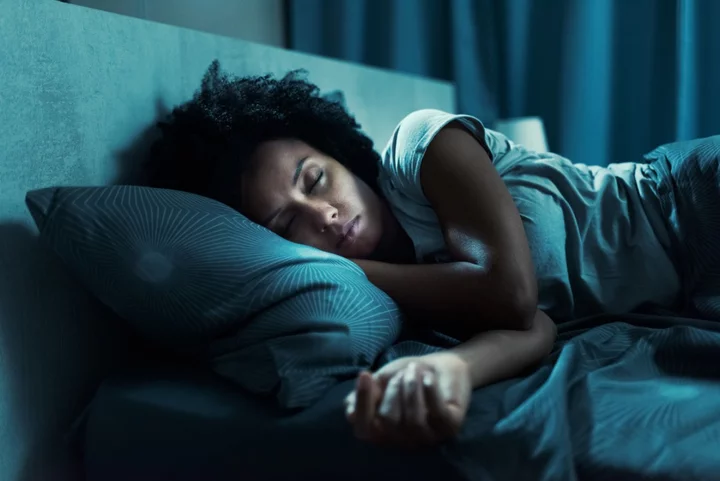
Sounds that can help you fall asleep better
A sleep expert has revealed which sounds help you get to sleep – and which ones are the best to wake up to. Sleep expert Hannah Shore claims ocean waves, a crackling fire and the distant buzzing of a fan are among the top ten sounds that help people fall asleep. Whereas hearing a piece of toast being cut or a kettle boiling is most likely to make them rise and shine gently. It comes after a poll which looked at 2,000 adults, found half enjoy listening to white noise to go to sleep or wake them up. The study, commissioned by Premier Inn, found 26 per cent listen to it every night, with rainfall sounds (40 per cent), music (34 per cent) and the sound of a fan (24 per cent) among the top choices. The hotel chain has launched Nod-Flix: an ASMR channel where guests can have their optimal video and soundscape play as they drift off. Hannah Shore, who is working with the hotel brand in partnership with Silentnight, said: “Depending on the individual, watching or listening to something calming before bed can be part of our sleep process. “Different sounds generate different responses from our subconscious when we’re asleep, so what might be soothing to one, might not be for another. “If you’re sharing a bed or a room, be considerate and invest in a pair of headphones or why not try finding a sound that you both find soothing?” The study also found that if they are sharing a room with other people and unable to listen to their white noise, 27 per cent wouldn’t be able to sleep properly as a result. More than half (58 per cent) normally listen to these sounds or noises on their phone, while 34 per cent tune in via an app. But 15 per cent even have a sound machine. Wind sounds (21 per cent), audiobooks (16 per cent) and a cat purring (seven per cent) also made the list of sounds and noises people like to fall asleep to. It also emerged half of the adults polled feel their sleep varies depending on the season we’re in. And 57 per cent reckon they sleep the best during autumn or winter, compared to only seven per cent who get the best shut-eye over the summer months. Respondents were shown a number of hotel-inspired ASMR type videos from the Nod-Flix channel, from the kettle boiling to a suitcase being pulled along hard floor. It found the sound of sizzling bacon was found to be most relaxing, followed by the trickle of running water from the shower. The study carried out via OnePoll.com, also revealed the sound of a vacuum was surprisingly least calming. Hannah Shore, for Premier Inn, added: “Switching off does not come as easy to some people as it does others and sounds are a great way to help with this. “Some people prefer complete silence whereas to others the silence means they listen out for all the little sounds, in a hotel this can be people walking down the hall, doors closing, the lift. “Others may find they need their brain to concentrate on something else, in these cases there needs to be something in the sounds they can focus on like the slow rhythm of calming music, the repetitiveness of waves lapping on the beach or even the noise of the TV. “This can allow the mind to switch off from the day and therefore allowing you to fall asleep, which we hope the Nod-Flix channel will accomplish for many.” Some noises that help Brits sleep better: Rainfall sounds Music Ocean sounds The sound of a fan The sound of favourite TV show/ streaming service Wind sounds Podcasts Audio Books Jungle/forest/woodland sounds Fireplace sounds Static sounds City ambience Animal sounds A cat purring The sound of a vacuum cleaner Here are some tips for a restful sleep: If you’re going to watch something before bed, make sure it’s calming content Keep the space you’re sleeping in tidy Don’t eat a heavy meal before bed Invest in some bed socks – they help increase blood circulation Make sure your pillow supports your sleeping position Dim the lights – it helps our bodies to produce sleep hormones like melatonin Get some black out blinds or curtains to block out bright lights White noise such as fans, hairdryers, hoovers are great for blocking out sound. If you want to go to sleep in a calmer way, pink noise is also good - think of wind, steady rain and reselling leaves. Green noise is similar to pink but will have an undertone of more constant hissing noise but still nature led such as running streams. To help you focus throughout the day, brown noises such as the crack of thunder which have deeper tones works really well. Read More Sleep expert reveals the simple secret to a good night’s rest Irregular sleep patterns linked to harmful gut bacteria, study suggests What is the 10-3-2-1-0 sleep method? How to spend the perfect healthy Super Saturday – according to science Holidays to the homeland could help children hold onto family’s original language The cure for smelly garlic breath? Turns out, it’s simpler than you think
2023-09-26 20:25

Victoria’s Secret Can’t Let Go of Its Angel Wings
Victoria’s Secret & Co. has been seeking penance with shoppers after a backlash to its sexy imagery, with
2023-09-26 18:50
